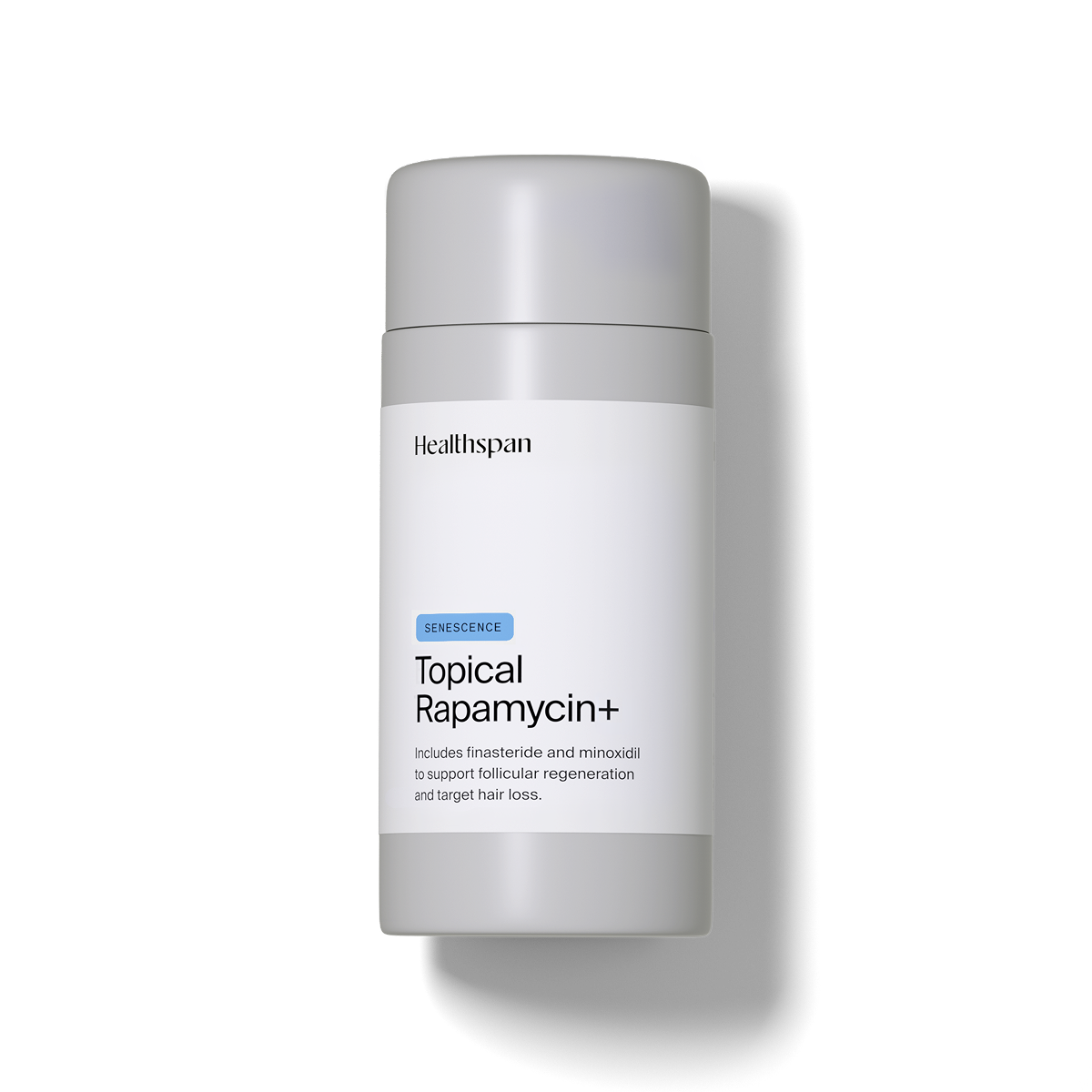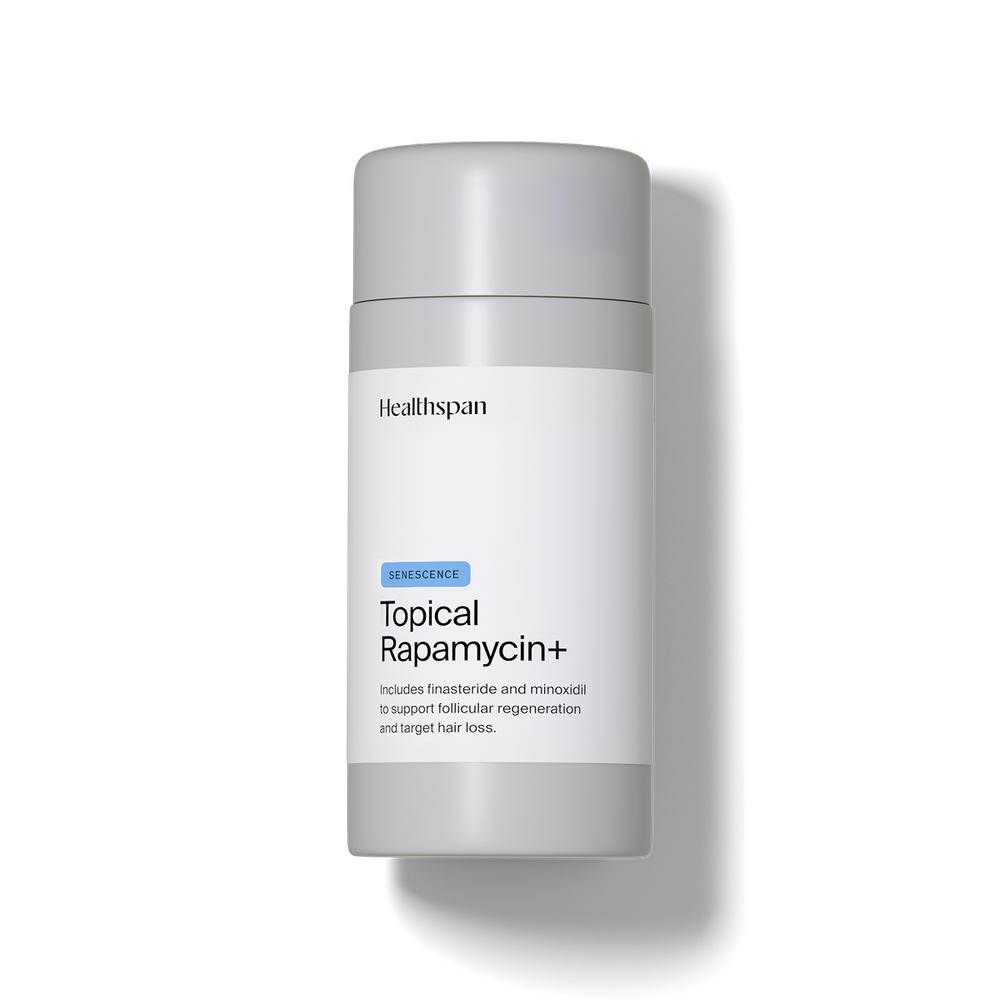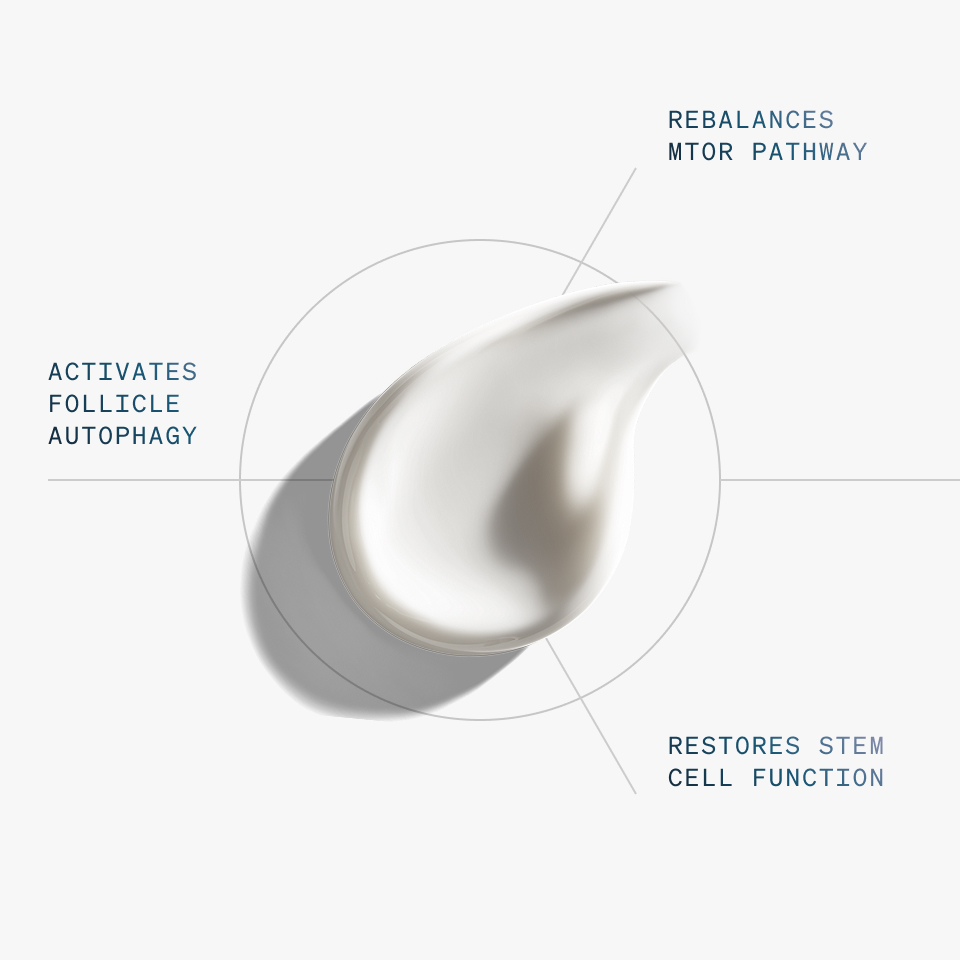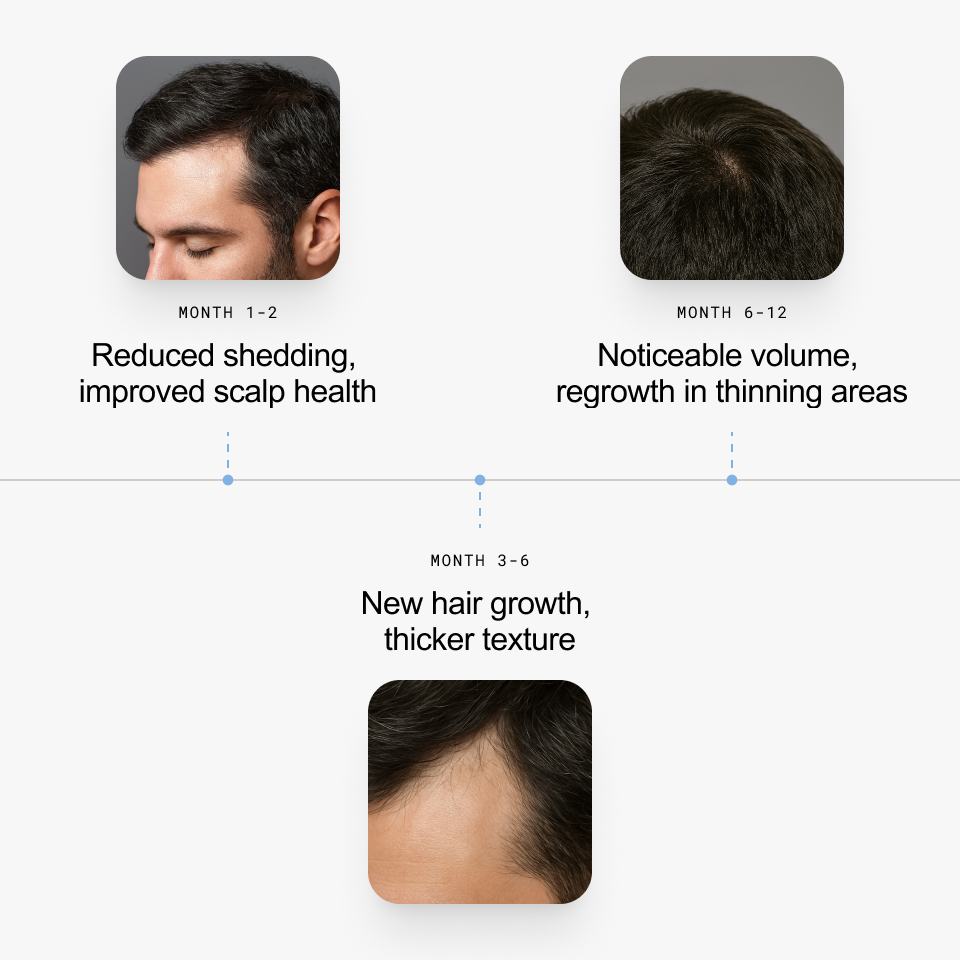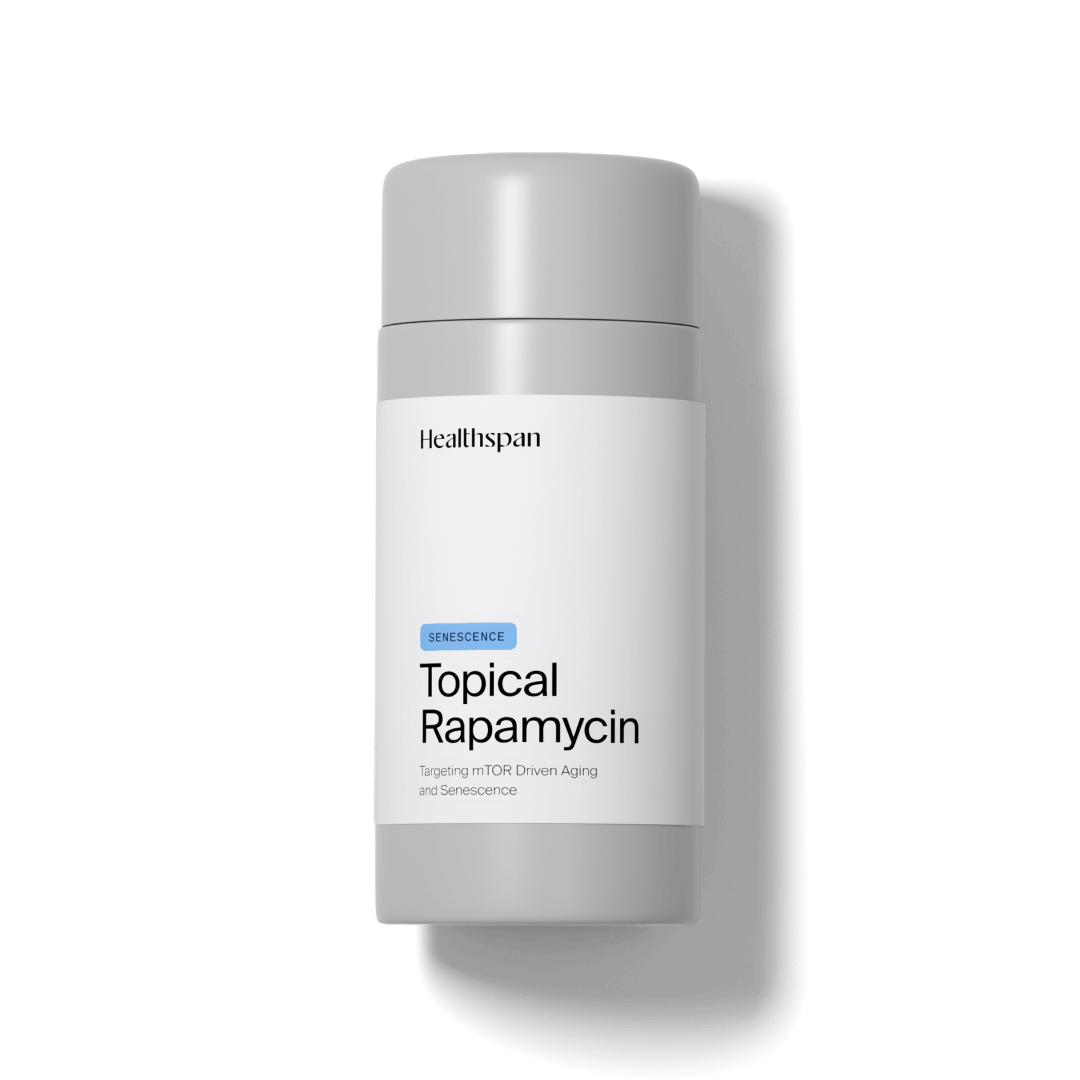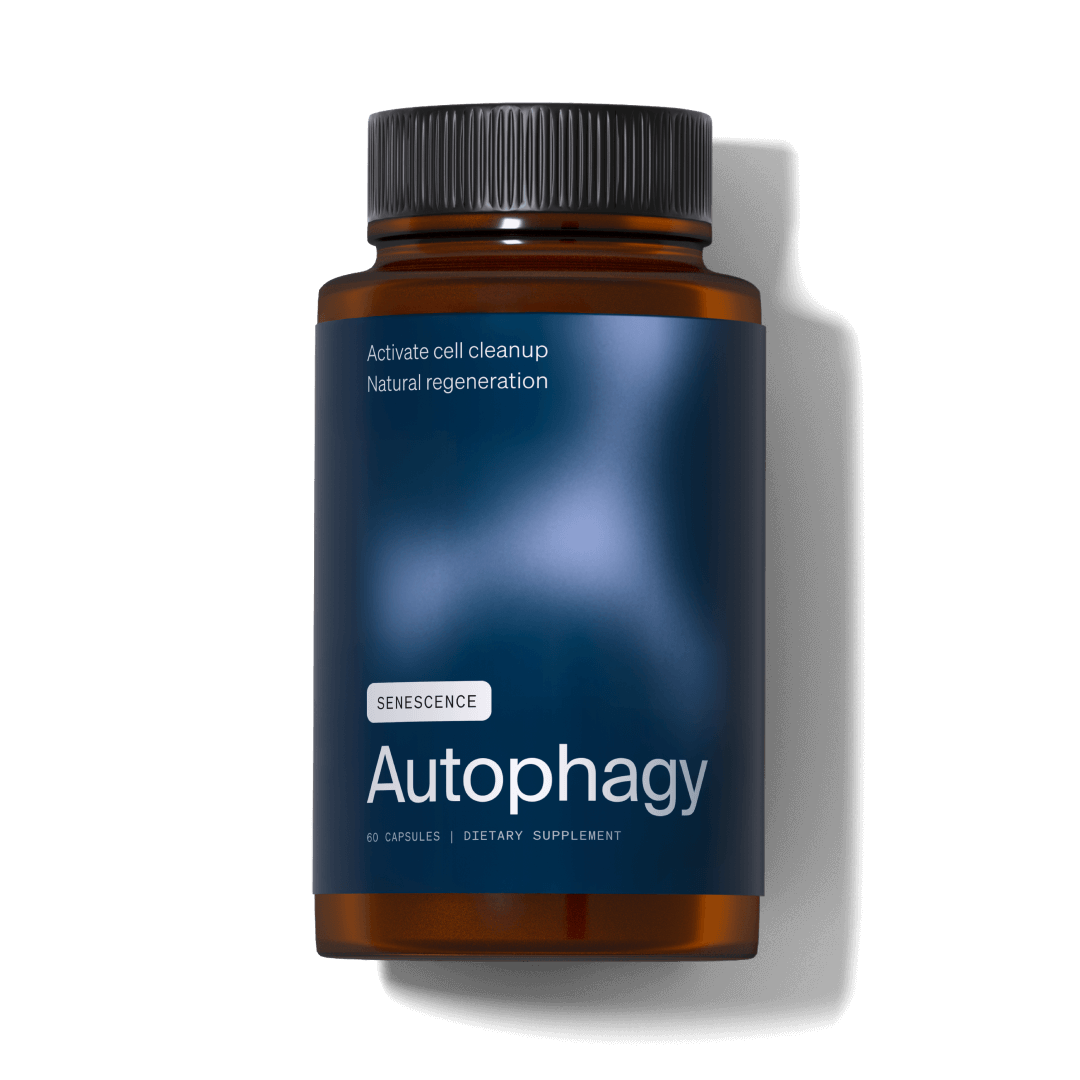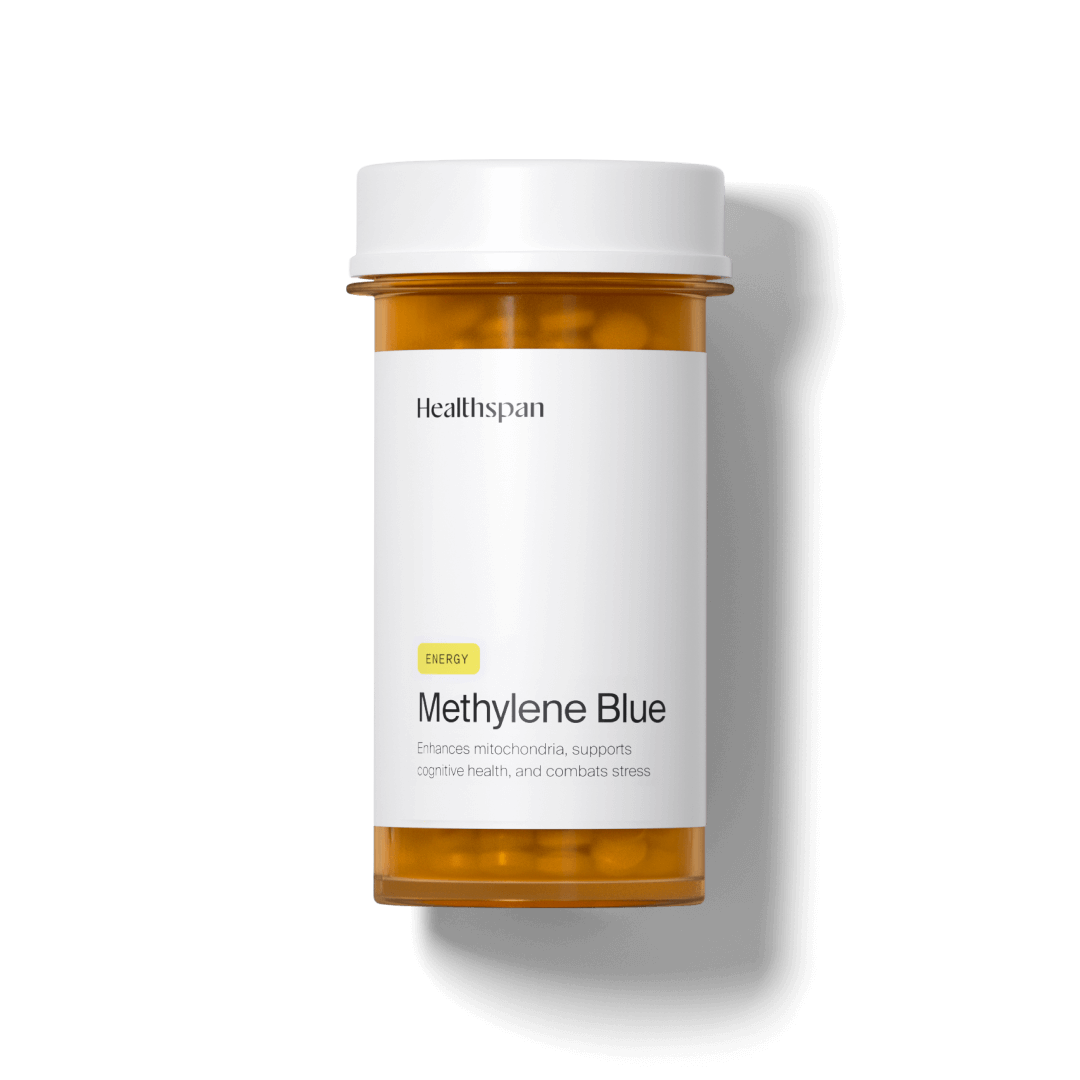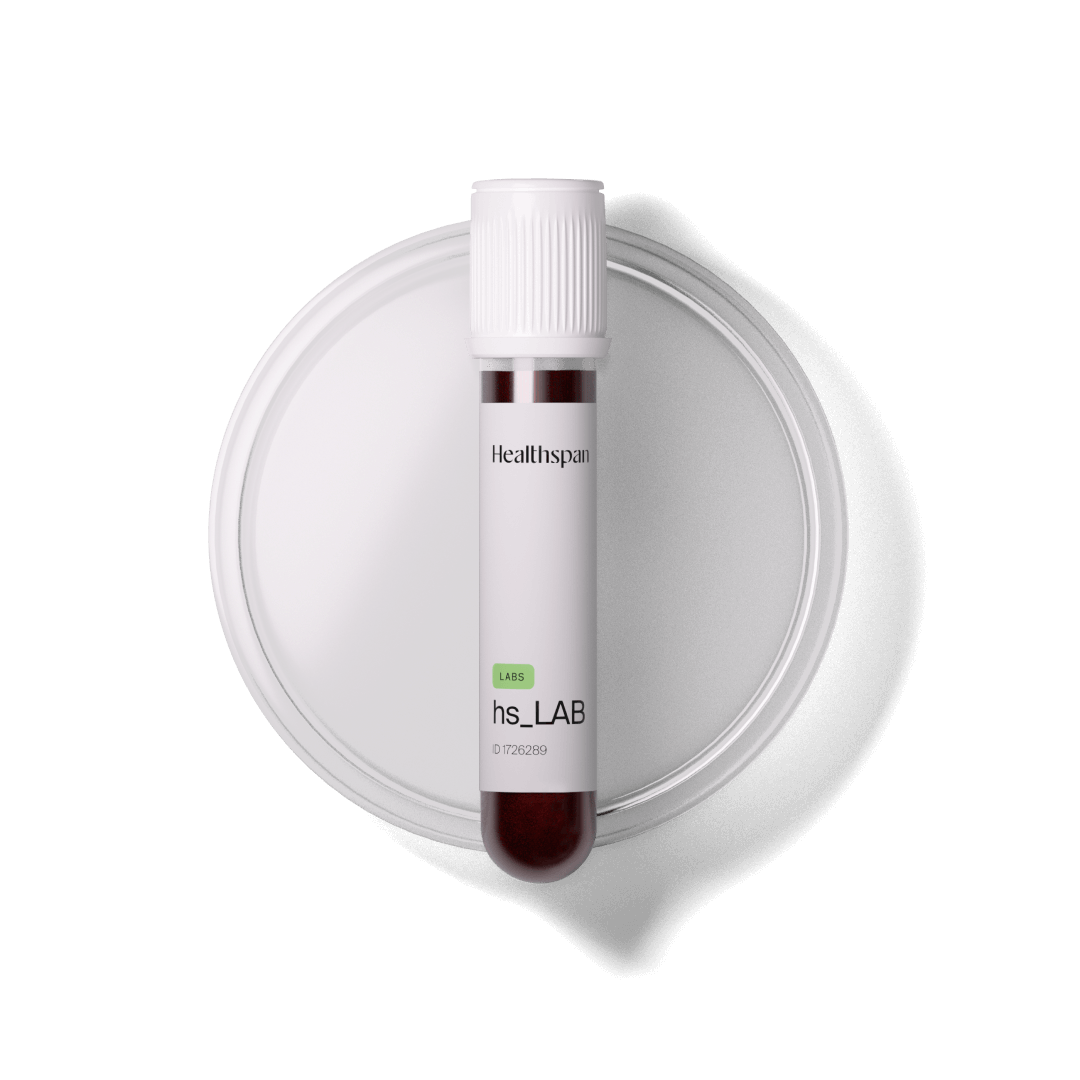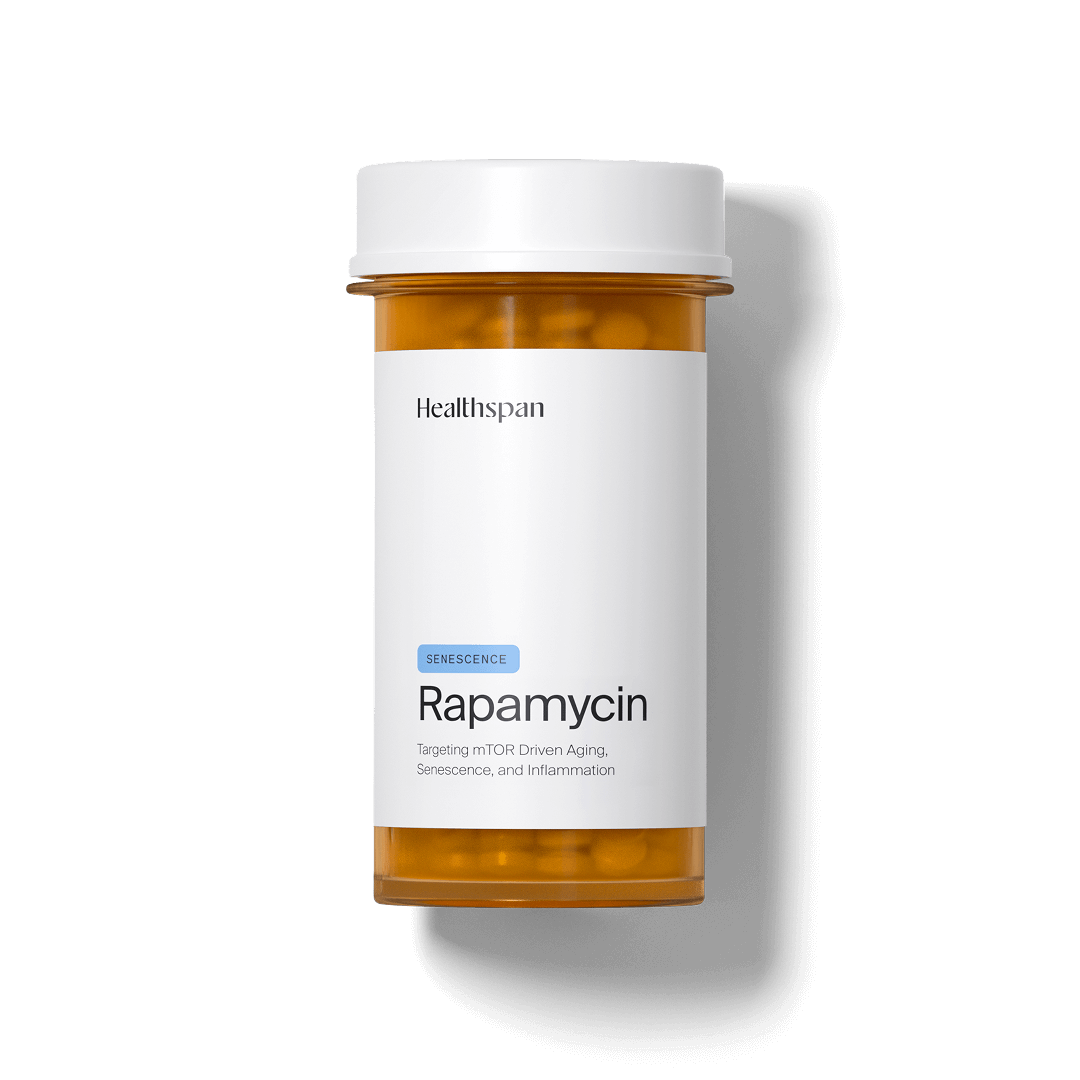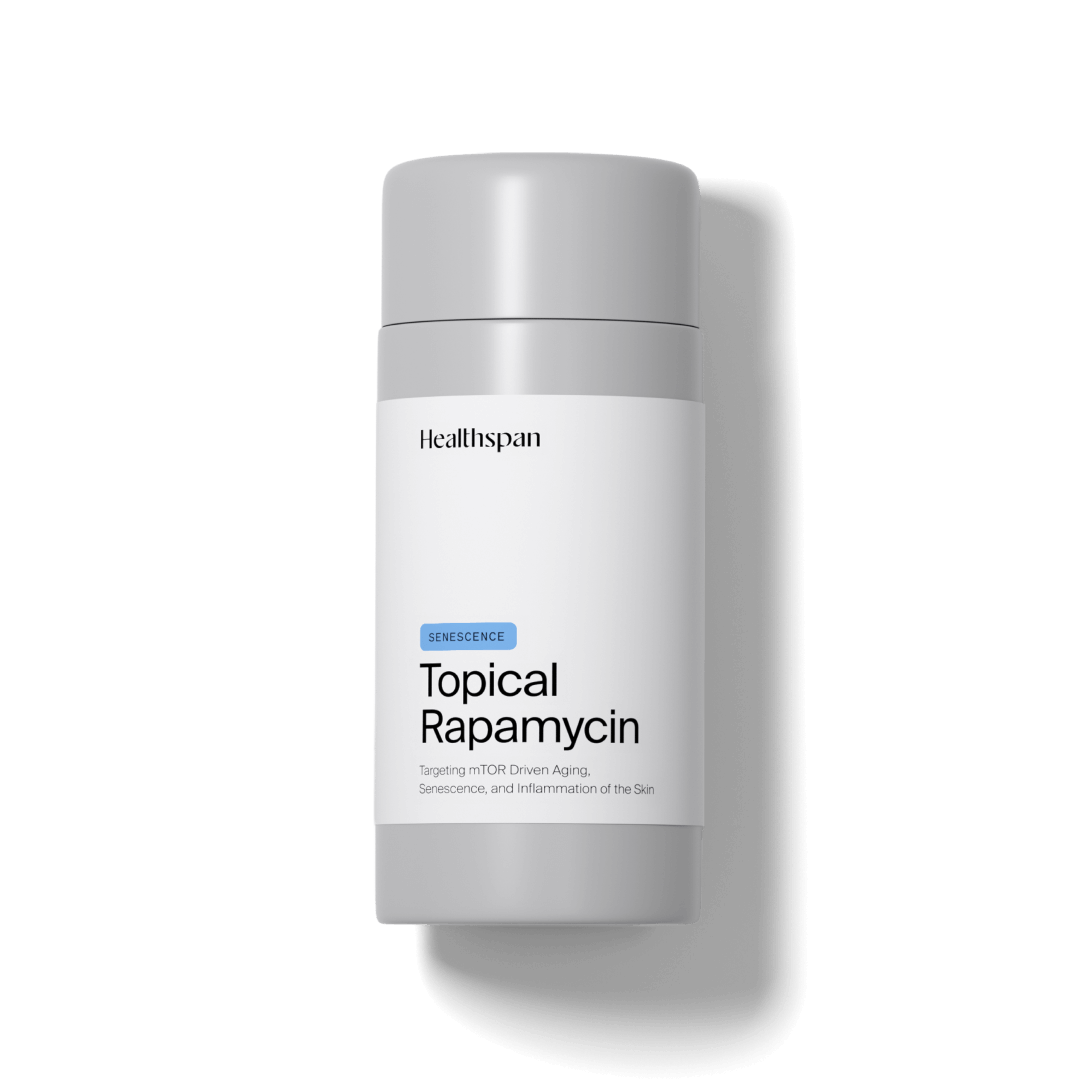My hair growth was one of the first things I noticed. It went from super baby fine and thinning to think and healthy after my first two and a half months.
Topical Rapamycin+ for Hair
A unique formula with rapamycin, finasteride, and minoxidil targets the underlying causes of thinning hair to support fuller growth, stronger strands, and long-term follicle health.
See visible thickening as follicles reawaken and extend their growth (anagen) phase, supported by improved cellular and vascular processes.
Reduce daily hair loss and protect existing strands as finasteride lowers DHT and rapamycin restores follicle stem cell function.
Maintain a healthier scalp and stronger follicles by activating autophagy, improving circulation, and protecting against hormonal damage.
Doctor prescribed. Dispensed by a LegitScript-certified pharmacy. Customized for you.
Starting at
$
120
/mo
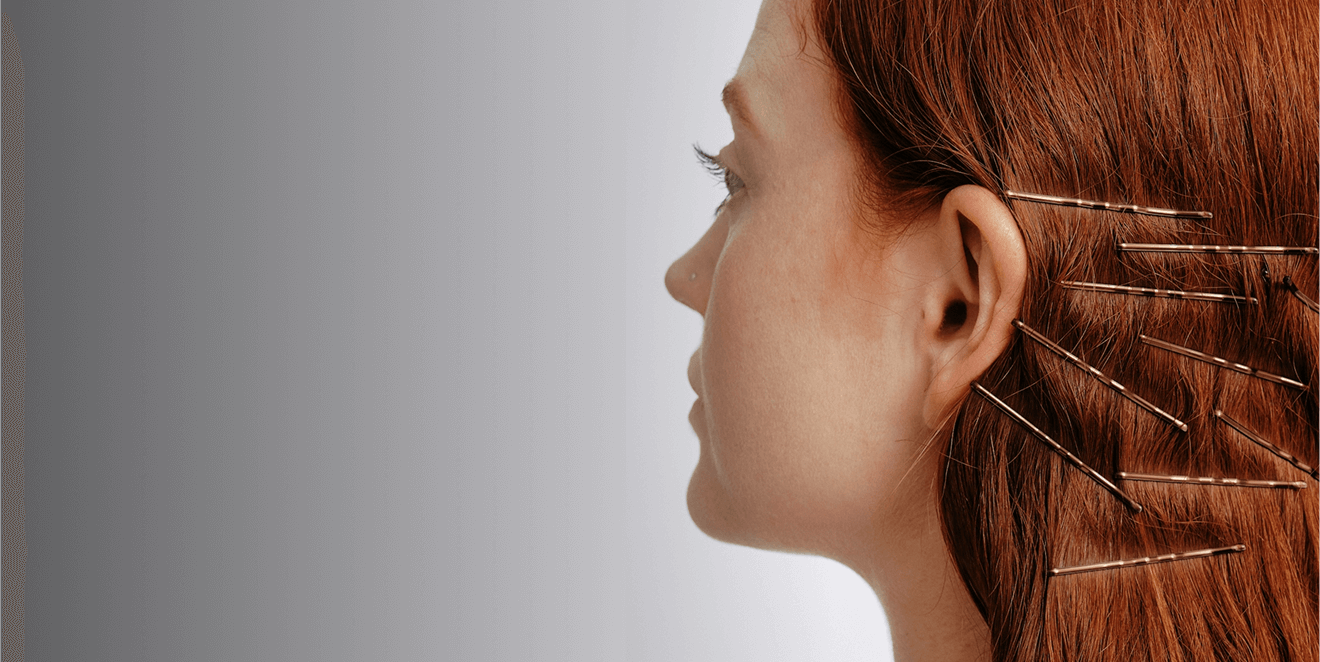
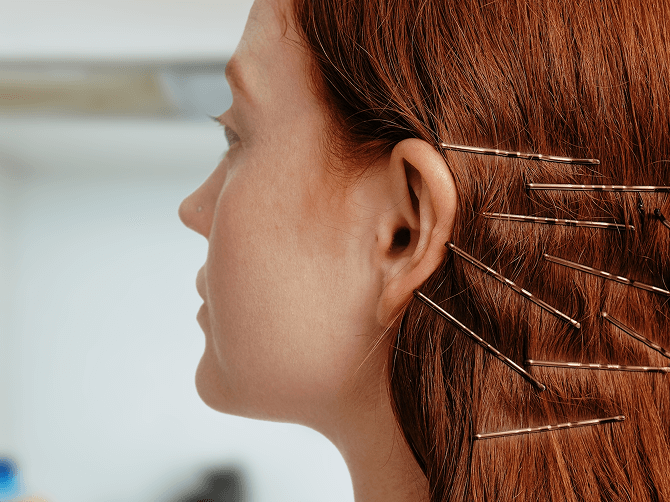
Hair that reflects strength, not stress. Topical Rapamycin+ supports healthier follicles and fuller growth over time.
Get to the root of healthy hair
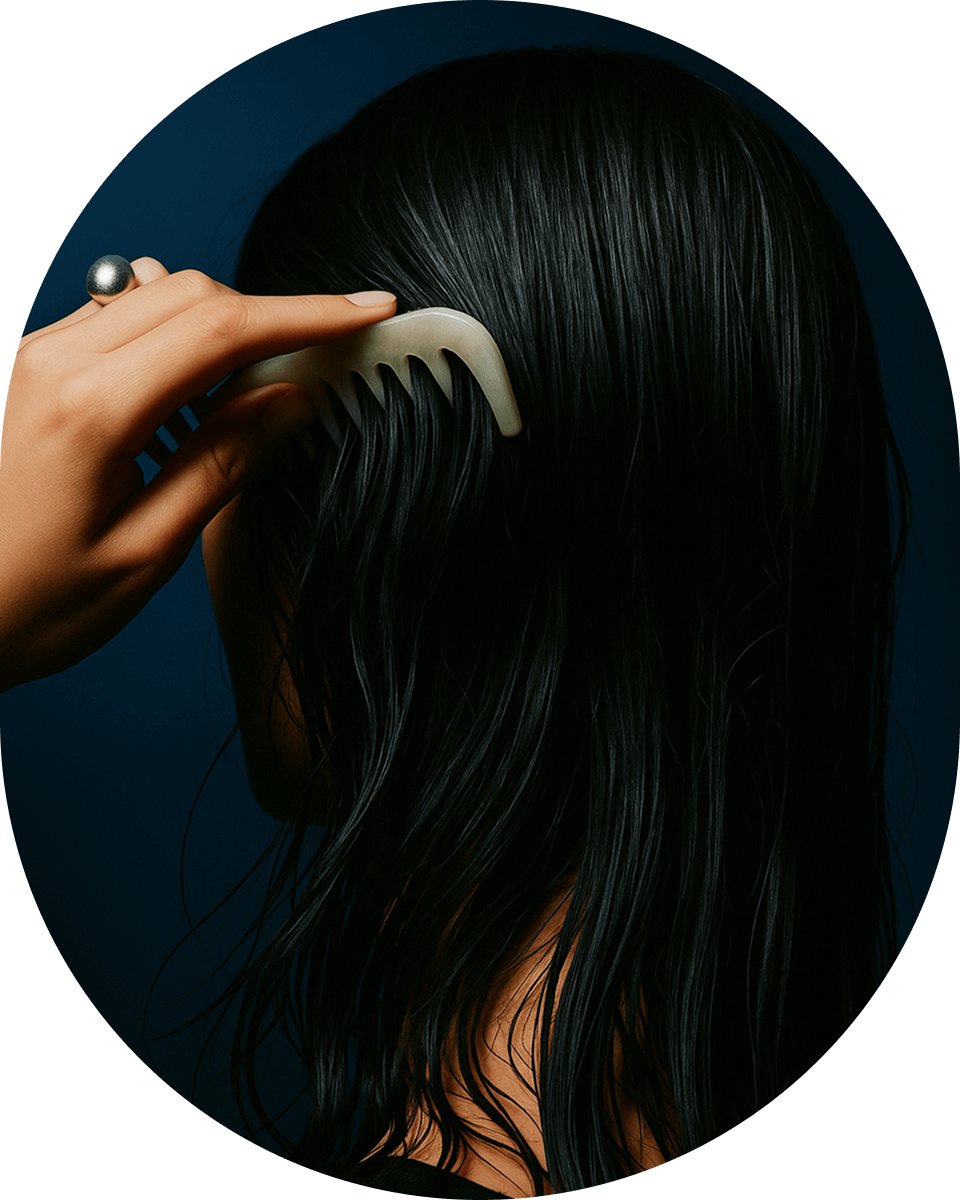
The highest standards of care
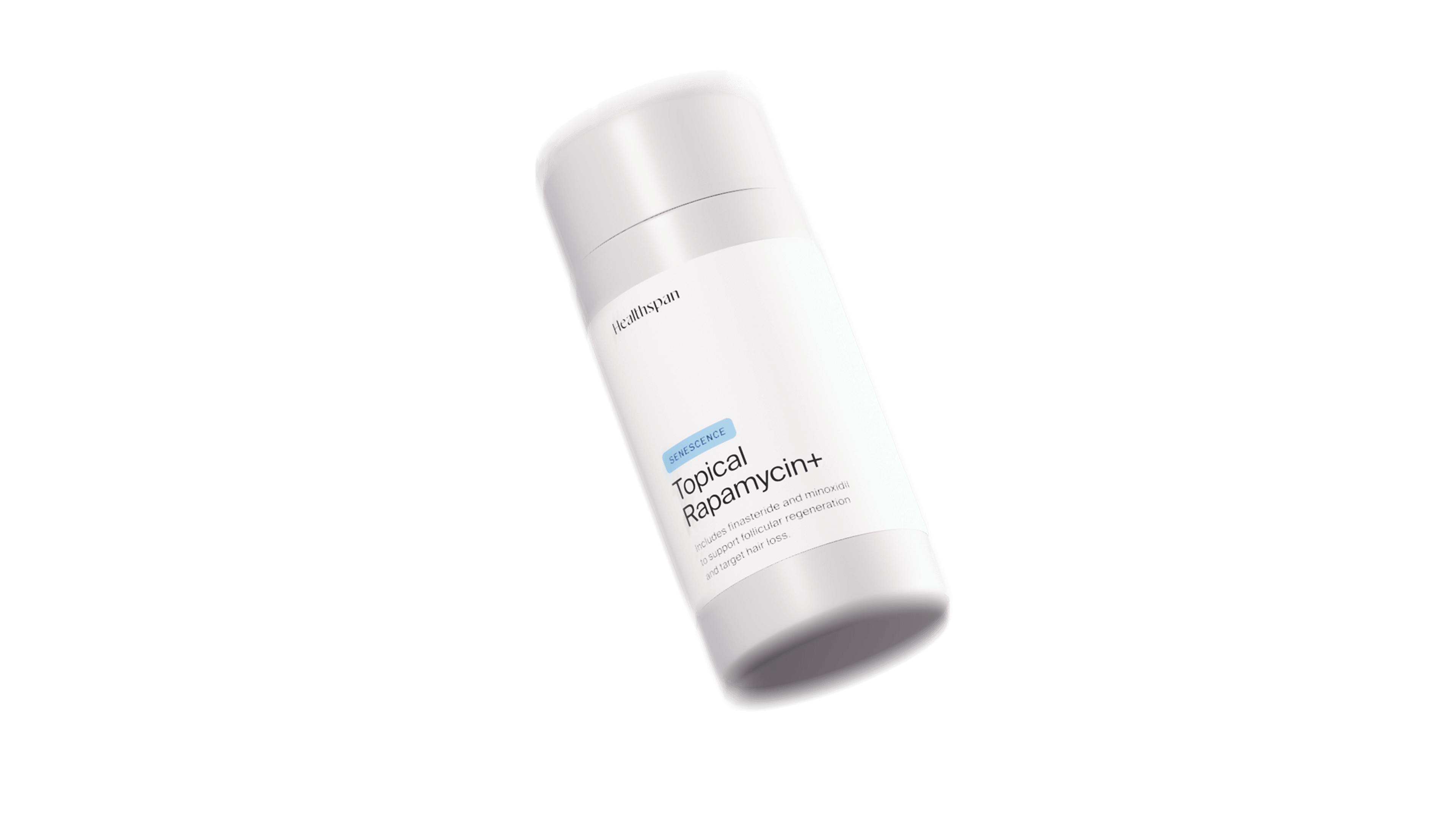
Purity is measured to confirm that nearly all of the material is the active compound. At around 99.5% purity, pharmaceutical-grade rapamycin avoids contaminants or degraded byproducts that could interfere with follicle health or increase the risk of scalp irritation.
Potency is verified every 3–6 months to confirm each batch remains within ±10% of the intended concentration. For rapamycin used on the scalp, precision is especially important—too little may not sufficiently reduce follicle senescence, while too much may increase the risk of irritation. Consistent potency ensures dependable support for follicle renewal and regrowth.
Trace metal testing ensures ingredients remain free from unsafe levels of arsenic, lead, and mercury. This safeguard is particularly important for scalp treatments, where long-term use and repeated absorption could otherwise allow contaminants to accumulate. Pharmaceutical-grade rapamycin keeps metals at trace levels defined by USP safety standards, protecting both safety and effectiveness.
We work with pharmacy partners who confirm through allergen and raw material declarations that this formulation is non-GMO. Avoiding genetically modified inputs ensures product consistency, reliability, and suitability for long-term use in sensitive scalp applications.
Longevity Pathways
To affect longevity, we must understand its pathways

Cellular Senescence
Hair follicle senescence accelerates aging and hair loss. Topical Rapamycin with EGCG reduces senescence and stimulates hair follicle stem cells, rejuvenating the scalp to promote healthier, fuller hair growth.

Autophagy Enhancement
Rapamycin inhibits mTOR to boost autophagy—the cellular cleanup process that removes damaged components. This keeps hair follicle stem cells robust and responsive, combating age-related decline and promoting sustained hair growth.

mTOR Pathway
Rapamycin targets the mTOR pathway to enhance autophagy in hair follicle stem cells (HFSCs). This cellular cleanup reduces senescence and keeps stem cells vibrant, enabling them to trigger the active hair growth phase more effectively.

Stem Cell Functionality
Topical Rapamycin revitalizes hair follicle stem cells by enhancing autophagy through mTOR pathway intervention. This stimulation helps aging stem cells respond better to growth cues, promoting robust hair regeneration and healthier follicles.

Inflammation Reduction
Rapamycin reduces scalp inflammation by enhancing autophagy, which removes damaged cells that cause inflammatory responses. Less inflammation creates a better environment for hair follicle stem cells to function and grow healthy hair.

Cellular Senescence
Hair follicle senescence accelerates aging and hair loss. Topical Rapamycin with EGCG reduces senescence and stimulates hair follicle stem cells, rejuvenating the scalp to promote healthier, fuller hair growth.

Autophagy Enhancement
Rapamycin inhibits mTOR to boost autophagy—the cellular cleanup process that removes damaged components. This keeps hair follicle stem cells robust and responsive, combating age-related decline and promoting sustained hair growth.

mTOR Pathway
Rapamycin targets the mTOR pathway to enhance autophagy in hair follicle stem cells (HFSCs). This cellular cleanup reduces senescence and keeps stem cells vibrant, enabling them to trigger the active hair growth phase more effectively.

Stem Cell Functionality
Topical Rapamycin revitalizes hair follicle stem cells by enhancing autophagy through mTOR pathway intervention. This stimulation helps aging stem cells respond better to growth cues, promoting robust hair regeneration and healthier follicles.

Inflammation Reduction
Rapamycin reduces scalp inflammation by enhancing autophagy, which removes damaged cells that cause inflammatory responses. Less inflammation creates a better environment for hair follicle stem cells to function and grow healthy hair.

Cellular Senescence
Hair follicle senescence accelerates aging and hair loss. Topical Rapamycin with EGCG reduces senescence and stimulates hair follicle stem cells, rejuvenating the scalp to promote healthier, fuller hair growth.

Autophagy Enhancement
Rapamycin inhibits mTOR to boost autophagy—the cellular cleanup process that removes damaged components. This keeps hair follicle stem cells robust and responsive, combating age-related decline and promoting sustained hair growth.

mTOR Pathway
Rapamycin targets the mTOR pathway to enhance autophagy in hair follicle stem cells (HFSCs). This cellular cleanup reduces senescence and keeps stem cells vibrant, enabling them to trigger the active hair growth phase more effectively.

Stem Cell Functionality
Topical Rapamycin revitalizes hair follicle stem cells by enhancing autophagy through mTOR pathway intervention. This stimulation helps aging stem cells respond better to growth cues, promoting robust hair regeneration and healthier follicles.

Inflammation Reduction
Rapamycin reduces scalp inflammation by enhancing autophagy, which removes damaged cells that cause inflammatory responses. Less inflammation creates a better environment for hair follicle stem cells to function and grow healthy hair.

Cellular Senescence
Hair follicle senescence accelerates aging and hair loss. Topical Rapamycin with EGCG reduces senescence and stimulates hair follicle stem cells, rejuvenating the scalp to promote healthier, fuller hair growth.

Autophagy Enhancement
Rapamycin inhibits mTOR to boost autophagy—the cellular cleanup process that removes damaged components. This keeps hair follicle stem cells robust and responsive, combating age-related decline and promoting sustained hair growth.

mTOR Pathway
Rapamycin targets the mTOR pathway to enhance autophagy in hair follicle stem cells (HFSCs). This cellular cleanup reduces senescence and keeps stem cells vibrant, enabling them to trigger the active hair growth phase more effectively.

Stem Cell Functionality
Topical Rapamycin revitalizes hair follicle stem cells by enhancing autophagy through mTOR pathway intervention. This stimulation helps aging stem cells respond better to growth cues, promoting robust hair regeneration and healthier follicles.

Inflammation Reduction
Rapamycin reduces scalp inflammation by enhancing autophagy, which removes damaged cells that cause inflammatory responses. Less inflammation creates a better environment for hair follicle stem cells to function and grow healthy hair.
Hear from our patients
OUR TREATMENTS
Reviews
247 reviews
Frequently asked questions
Most people notice reduced shedding or early new growth by about 3 months. Visible improvements in thickness and density are usually seen after 6–12 months of consistent use.
A short shedding phase can happen in the first 1–2 months. This is normal — the medication is helping follicles reset into a healthier growth cycle.
Yes. Like other hair-loss treatments, results are maintained only with continued use. Stopping treatment allows hair loss to gradually return.
Yes. Because it works locally on the scalp, topical finasteride keeps systemic exposure very low, reducing the chance of side effects while maintaining effectiveness.
It should not be used during pregnancy or breastfeeding. Post-menopausal women may be candidates — your provider will guide you based on your health and goals.
Your scalp should be clean and dry, but daily shampooing isn’t required. The key is good absorption into the skin.
Keep the gel at room temperature, out of direct sunlight and heat. No refrigeration is needed. The product remains effective for up to 180 days after it is made.
Mild scalp dryness, redness, or itching are the most common and usually improve with time. If you notice anything unexpected — such as swelling, dizziness, or sexual side effects — stop and contact your provider.
Yes. Microneedling can enhance penetration and follicle response. If you use other topical products, apply this one first and let it absorb before adding others.
Some patients notice improvements in hair quality and color. Sirolimus may support pigment cells, but results vary from person to person.
Most people notice reduced shedding or early new growth by about 3 months. Visible improvements in thickness and density are usually seen after 6–12 months of consistent use.
A short shedding phase can happen in the first 1–2 months. This is normal — the medication is helping follicles reset into a healthier growth cycle.
Yes. Like other hair-loss treatments, results are maintained only with continued use. Stopping treatment allows hair loss to gradually return.
Yes. Because it works locally on the scalp, topical finasteride keeps systemic exposure very low, reducing the chance of side effects while maintaining effectiveness.
It should not be used during pregnancy or breastfeeding. Post-menopausal women may be candidates — your provider will guide you based on your health and goals.
Your scalp should be clean and dry, but daily shampooing isn’t required. The key is good absorption into the skin.
Keep the gel at room temperature, out of direct sunlight and heat. No refrigeration is needed. The product remains effective for up to 180 days after it is made.
Mild scalp dryness, redness, or itching are the most common and usually improve with time. If you notice anything unexpected — such as swelling, dizziness, or sexual side effects — stop and contact your provider.
Yes. Microneedling can enhance penetration and follicle response. If you use other topical products, apply this one first and let it absorb before adding others.
Some patients notice improvements in hair quality and color. Sirolimus may support pigment cells, but results vary from person to person.
